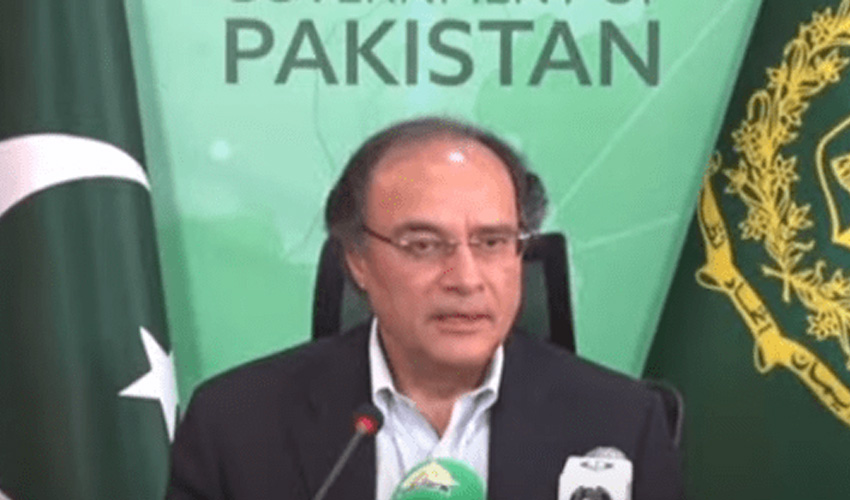Federal Finance Minister Muhammad Aurangzeb announced on Sunday that China has assured its support for Pakistan in securing the approval of the International Monetary Fund (IMF) board.
Addressing a press conference in Islamabad, Aurangzeb shared that China has expressed appreciation for Pakistan's ongoing talks with the IMF and has pledged to assist in the approval process. The minister also highlighted the cooperation from Saudi Arabia in these efforts.
The FinMin stressed the government's commitment to improving the economy, stating, "Steps are being taken to ensure economic stability without imposing undue burdens on the lower class."
He detailed a trader-friendly scheme aimed at simplifying the tax process and strengthening the economy through tax compliance. "Paying tax dues will fortify our economy. Refund administration is being streamlined to facilitate this," he added.
The minister reported that since July 1, refunds amounting to approximately Rs70 billion have been processed. He underscored the significance of these refunds, recounting his own experience as a salaried individual who paid the highest tax just a few months ago.
Efforts to broaden the tax base are ongoing, including discussions to bring the agriculture sector into the tax net.
Aurangzeb noted that Prime Minister Shahbaz Sharif conducts weekly meetings on Federal Board of Revenue (FBR) reforms, with provincial chief ministers expected to legislate on agricultural taxation. "I want a very simple tax system for every sector," he stated.
"Tax defaulters are not sincere with the country and its people. Strengthening our economy requires compliance with tax obligations," he remarked. He assured that digitization efforts are underway to combat corruption and harassment, leveraging comprehensive data on non-filers to enforce tax compliance centrally.
Discussing Customs, Aurangzeb revealed under-invoicing issues amounting to Rs50 to Rs200 billion. He mentioned ongoing cabinet committee discussions about merging certain ministries, including the potential merger of the IT and Telecom sectors, to enhance efficiency.
Aurangzeb addressed the need for provincial responsibility in the health sector and the proposed merger of the ministries for Kashmir and Gilgit-Baltistan.
He acknowledged the challenges in advancing institutional reforms initiated by Dr. Ishrat Hussain but affirmed efforts to create a development budget and address external payment difficulties.
Highlighting the necessity of macroeconomic stability, Aurangzeb emphasized the importance of investments in export sectors. He recounted his recent visit to China with Owais Laghari, focusing on energy and the Panda Bond.
During Prime Minister Sharif's visit to China, discussions with the Chinese President centered on Pakistan's energy needs. "China has appreciated our talks with the IMF and assured support for the IMF board approval, with backing from both Saudi Arabia and China," Aurangzeb concluded.



























